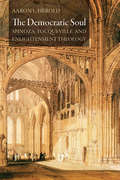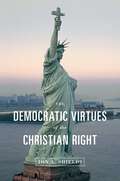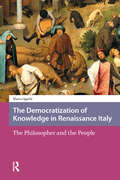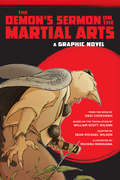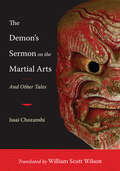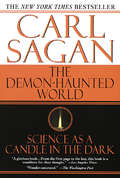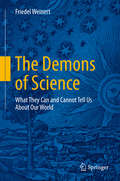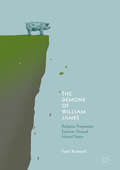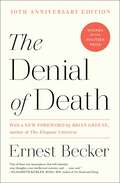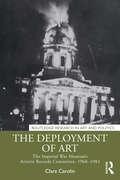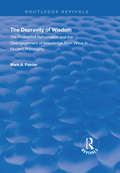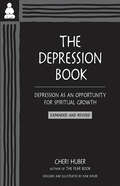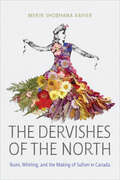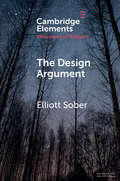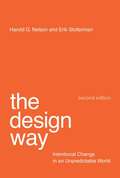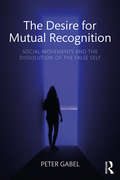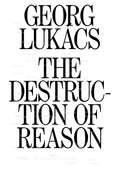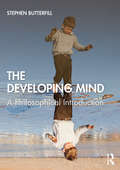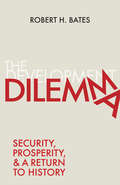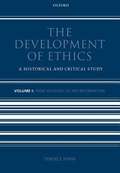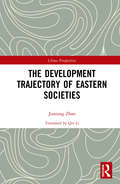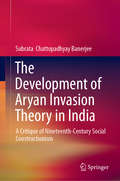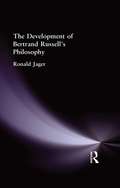- Table View
- List View
The Democratic Soul: Spinoza, Tocqueville, and Enlightenment Theology
by Aaron L. HeroldIn The Democratic Soul, Aaron L. Herold argues that liberal democracy's current crisis—of extreme polarization, rising populism, and disillusionment with political institutions—must be understood as the culmination of a deeper dissatisfaction with the liberal Enlightenment. Major elements of both the Left and the Right now reject the Enlightenment's emphasis on rights as theoretically unfounded and morally undesirable and have sought to recover a contrasting politics of obligation. But this has re-opened questions about the relationship between politics and religion long thought settled.To address our situation, Herold examines the political thought of Spinoza and Tocqueville, two authors united in support of liberal democracy but with differing assessments of the Enlightenment. Through an original reading of Spinoza's Theologico-Political Treatise, Herold uncovers the theological foundation of liberal democracy: a comprehensive moral teaching rehabilitating human self-interest, denigrating "devotion" as a relic of "superstition," and cultivating a pride in living, acting, and thinking for oneself. In his political vision, Spinoza articulates our highest hopes for liberalism, for he is confident such an outlook will produce both intellectual flourishing and a paradoxical recovery of community.But Spinoza's project contains tensions which continue to trouble democracy today. As Herold shows via a new interpretation of Tocqueville's Democracy in America, the dissatisfactions now destabilizing democracy can be traced to the Enlightenment's failure to find a place for religious longings whose existence it largely denied. In particular, Tocqueville described a natural human desire for a kind of happiness found, at least partly, in self-sacrifice. Because modernity weakens religion precisely as it makes democracy stronger than liberalism, it permits this desire to find new and dangerous outlets. Tocqueville thus sought to design a "new political science" which could rectify this problem and which therefore remains indispensable today in recovering the moderation lacking in contemporary politics.
The Democratic Virtues of the Christian Right
by Jon A. ShieldsThe Christian Right is frequently accused of threatening democratic values. But in The Democratic Virtues of the Christian Right, Jon Shields argues that religious conservatives have in fact dramatically increased and improved democratic participation and that they are far more civil and reasonable than is commonly believed. Shields interviewed leaders of more than thirty Christian Right organizations, observed movement activists in six American cities, and analyzed a wide variety of survey data and movement media. His conclusions are surprising: the Christian Right has reinvigorated American politics and fulfilled New Left ideals by mobilizing a previously alienated group and by refocusing politics on the contentious ideological and moral questions that motivate citizens. Shields also finds that, largely for pragmatic reasons, the vast majority of Christian Right leaders encourage their followers to embrace deliberative norms in the public square, including civility and secular reasoning. At the same time, Shields highlights a tension between participatory and deliberative ideals since Christian Right leaders also nurture moral passions, prejudices, and dogmas to propel their movement. Nonetheless, the Christian Right's other democratic virtues help contain civic extremism, sharpen the thinking of activists, and raise the level and tenor of political debate for all Americans.
The Democratization of Knowledge in Renaissance Italy: The Philosopher and the People (Scientiae Studies)
by Marco SgarbiThe book identifies to what extent it is possible to speak of a democratization of knowledge in Renaissance Italy. It establishes the boundaries of the present investigation within the Aristotelian tradition, and outlines democratization as a process capable of assigning power to people. It deals with how the democratization of knowledge historically is invested equally in ideas from religion and philosophy, involving the same democratizers, moved by similar intentions, employing identical techniques of vulgarization and targeting equivalent communities of recipients.
The Demon's Sermon on the Martial Arts: A Graphic Novel
by Issai ChozanshiA visually thrilling graphic novel adaptation of classic martial arts parables on swordsmanship and strategy—written by a real-life samurai The Demon&’s Sermon on the Martial Arts is a classic collection of martial arts tales, written by the eighteenth-century samurai Issai Chozanshi. Featuring demons, insects, birds, cats, and numerous other creatures, the stories here may seem whimsical, but they contain essential teachings that offer insight into the fundamental principles of the martial arts. This graphic novel version based on Chozanshi&’s text brings these tales alive in a captivating and immediately accessible way. Infused with Chozanshi&’s deep understanding of Taoism, Buddhism, Confucianism, and Shinto, the tales elucidate the nature of conflict, the importance of following one&’s own nature, yin and yang, the cultivation and transformation of ch&’i (life energy), and the attainment of mushin (no-mind). Ultimately, the reader learns in a visually exciting way that the path of the sword is a path of self-knowledge and leads to an understanding of life itself.
The Demon's Sermon on the Martial Arts: And Other Tales (Martial Arts And Self Defense Ser.)
by William Scott Wilson Issai ChozanshiThis collection of parables written by an eighteenth-century samurai is a classic of martial arts literature. The tales are concerned with themes such as perception of conflict, self-transformation, the cultivation of chi (life energy), and understanding yin and yang. Some of the parables seem light and fanciful, but they offer the reader valuable lessons on the fundamental principles of the martial arts; “The Mysterious Technique of the Cat” is iconic.The “demon” in the title story refers to the mythical tengu, who guard the secrets of swordsmanship. A swordsman travels to Mt. Kurama, famous for being inhabited by tengu, and in a series of conversations he learns about mushin (no-mind), strategy, the transformation of chi, and how the path of the sword leads to the understanding of life itself.The author, Issai Chozanshi, had a deep understanding of Taoism, Buddhism, Confucianism, and Shinto, as well as insight into the central role of chi in the universe—points that are succinctly explained in William Scott Wilson’s fine introduction and extensive endnotes. This is essential reading for anyone who wants to truly understand the philosophical underpinnings of martial arts, and how these principles relate to our existence.
The Demon-Haunted World: Science as a Candle in the Dark
by Carl SaganHow can we make intelligent decisions about our increasingly technology-driven lives if we don't understand the difference between the myths of pseudoscience and the testable hypotheses of science? Pulitzer Prize-winning author and distinguished astronomer Carl Sagan argues that scientific thinking is critical not only to the pursuit of truth but to the very well-being of our democratic institutions.<P> Casting a wide net through history and culture, Sagan examines and authoritatively debunks such celebrated fallacies of the past as witchcraft, faith healing, demons, and UFOs. And yet, disturbingly, in today's so-called information age, pseudoscience is burgeoning with stories of alien abduction, channeling past lives, and communal hallucinations commanding growing attention and respect. As Sagan demonstrates with lucid eloquence, the siren song of unreason is not just a cultural wrong turn but a dangerous plunge into darkness that threatens our most basic freedoms.
The Demons of Science
by Friedel WeinertThis book is the first all-encompassing exploration of the role of demons inphilosophical and scientific thought experiments. In Part I, the author explains the importance of thought experiments in science andphilosophy. Part II considers Laplace's Demon, whose claim is that the world iscompletely deterministic. Part III introduces Maxwell's Demon, who - by contrast - experiences a world that is probabilistic and indeterministic. Part IV explores Nietzsche's thesis of the cyclic and eternal recurrence of events. In each casea number of philosophical consequences regarding determinism and indeterminism, the arrows of time, the nature of the mind andfree will are said to follow from the Demons's worldviews. The book investigates what these Demons - and others - can and cannot tell us about our world.
The Demons of William James: Religious Pragmatism Explores Unusual Mental States
by Tadd RuetenikThis book is a psychological exploration of unusual minds, a religious exploration of demonological myth, and a philosophical exploration of the reaches of pragmatism. It uses topics such as hypnotism, mediumship, and mass possession to argue for a comprehensive understanding of the demonic that acknowledges not only the creativity which it encourages, but also the danger it can bring. Professor Ruetenik uses James’ religious pragmatism to evaluate the relevance of psychical research, and to explain common beliefs regarding demons, spirits, and other controlling personalities. The conclusion of this interdisciplinary research is as alarming as it is fascinating: When exploring the demons of William James, we discover that ordinary personality cannot be clearly separated from what we consider the demonic.
The Denial of Death
by Ernest BeckerWinner of the Pulitzer Prize, The Denial of Death explores how people and cultures around the world have reacted to the concept of death from celebrated cultural anthropologist Ernest Becker.Winner of the Pulitzer Prize in 1974 and the culmination of a life&’s work, The Denial of Death is Ernest Becker&’s brilliant and impassioned answer to the &“why&” of human existence. In bold contrast to the predominant Freudian school of thought, Becker tackles the problem of the vital lie—man&’s refusal to acknowledge his own mortality. In doing so, he sheds new light on the nature of humanity and issues a call to life and its living that still resonates decades after its writing.
The Deployment of Art: The Imperial War Museum’s Artistic Records Committee, 1968–1982 (Routledge Research in Art and Politics)
by Clare CarolinThis book explores the Artistic Records Committee (ARC) of the Imperial War Museum (IWM) as a bureaucratic mechanism that enabled the deployment of art as an instrument of war.The ARC was established in 1972 to commission artistic records of activities involving the British Armed Forces (BAF) deployed in the North of Ireland as part of Operation Banner. Through a close reading of artworks, archival research, and interviews with artists, former IWM staff, and a former British Army psychological operations (PSYOPs) expert, this book shows that the ARC was implicated in the ‘propaganda war’ that the British Government waged to counteract negative public perceptions of British military presence and activity in the North of Ireland after ‘Bloody Sunday,’ and later during Britain’s 1982 campaign to recapture the Falklands/Malvinas from Argentina (Operation Corporate). The two case studies are painter Ken Howard’s ARC commissions to record Operation Banner in 1973 and 1978 and illustrator Linda Kitson’s ARC commission to record the ‘Falklands Campaign’ in 1982. At a time when emergent conceptual and non-object-based art practices were increasingly concerned with exposure, concealment, and photographic evidence, the book demonstrates the potential operational significance of creating pictorial records and utilising art as a tool of warfare.This volume will be of interest to researchers and scholars of art history, museum studies, art and politics, and military and intelligence studies, as well as those studying the recent history of the North of Ireland and the Falklands/Malvinas war.
The Depravity of Wisdom: The Protestant Reformation and the Disengagement of Knowledge from Virtue in Modern Philosophy (Routledge Revivals)
by Mark A. PainterFirst published in 1999, the primary operative thesis of the book is that the Protestant Reformation cemented into Western consciousness a conception of humanity as fundamentally depraved and thus ushered in a conception of human reason far more restricted in scope than that known to pre-reformation philosophy. Though this study is essentially a work in the history of philosophy, it lays the groundwork for an original philosophy of language as well as offering a suggestion for a re-evaluation of Hegel in the light of this approach to language. The book concludes that what was in fact lost in the secular appropriation of the total depravity of man was a conception of reason intimately linked to the assumption that language and the general principles that govern it stand in some way as the guarantors of the correspondence of human thought and institutions and the world at large. At the bottom of this is the loss of the classical understanding of the faculty of practical reason.
The Depression Book: Depression as an Opportunity for Spiritual Growth
by Cheri HuberThis book provides a process for dealing with the dull pain of depression. It employs a custom hand-lettered font and many lighthearted illustrations. A self-guided retreat has been added to assist readers to explore how to be compassionate with themselves when depressed.
The Dervishes of the North: Rumi, Whirling, and the Making of Sufism in Canada
by Merin Shobhana XavierThe thirteenth-century Muslim mystic and poet Jalal al-Din Rumi (1207–1273) is a popular spiritual icon. His legacy is sustained within the mystical and religious practice of Sufism, particularly through renditions of his poetry, music, and the meditation practice of whirling. In Canada, practices associated with Rumi have become ubiquitous in public spaces, such as museums, art galleries, and theatre halls, just as they continue to inform sacred ritual among Sufi communities. The Dervishes of the North explores what practices associated with Rumi in public and private spaces tell us about Sufism and spirituality, including sacred, cultural, and artistic expressions in the Canadian context. Using Rumi and contemporary expressions of poetry and whirling associated with him, the book captures the lived reality of Sufism through an ethnographic study of communities in Toronto, Montreal, and Vancouver. Drawing from conversations with Sufi leaders, whirling dervishes, and poets, Merin Shobhana Xavier explores how Sufism is constructed in Canada, particularly at the nexus of Islamic mysticism, Muslim diaspora, spiritual commodity, popular culture, and universal spirituality. Inviting readers with an interest in religion and spirituality, The Dervishes of the North illuminates how non-European Christian traditions, like Islam and Sufism, have informed the religious and spiritual terrain of Canada.
The Design Argument (Elements in the Philosophy of Religion)
by Elliott SoberThis Element analyzes the various forms that design arguments for the existence of God can take, but the main focus is on two such arguments. The first concerns the complex adaptive features that organisms have. Creationists who advance this argument contend that evolution by natural selection cannot be the right explanation. The second design argument - the argument from fine-tuning - begins with the fact that life could not exist in our universe if the constants found in the laws of physics had values that differed more than a little from their actual values. Since probability is the main analytical tool used, the book provides a primer on probability theory.
The Design Way: Intentional Change in an Unpredictable World (Second Edition)
by Erik Stolterman Harold G. NelsonHumans did not discover fire--they designed it. Design is not defined by software programs, blueprints, or font choice. When we create new things--technologies, organizations, processes, systems, environments, ways of thinking--we engage in design. With this expansive view of design as their premise, in The Design Way Harold Nelson and Erik Stolterman make the case for design as its own culture of inquiry and action. They offer not a recipe for design practice or theorizing but a formulation of design culture's fundamental core of ideas. These ideas--which form "the design way"--are applicable to an infinite variety of design domains, from such traditional fields as architecture and graphic design to such nontraditional design areas as organizational, educational, interaction, and healthcare design. The text of this second edition is accompanied by new detailed images, "schemas" that visualize, conceptualize, and structure the authors' understanding of design inquiry. The text itself has been revised and expanded throughout, in part in response to reader feedback.
The Design and Statistical Analysis of Animal Experiments
by Simon T. Bate Robin A. Clark Simon T. Bate Robin A. ClarkWritten for animal researchers, this book provides a comprehensive guide to the design and statistical analysis of animal experiments. It has long been recognised that the proper implementation of these techniques helps reduce the number of animals needed. By using real-life examples to make them more accessible, this book explains the statistical tools employed by practitioners. A wide range of design types are considered, including block, factorial, nested, cross-over, dose-escalation and repeated measures and techniques are introduced to analyse the experimental data generated. Each analysis technique is described in non-mathematical terms, helping readers without a statistical background to understand key techniques such as t-tests, ANOVA, repeated measures, analysis of covariance, multiple comparison tests, non-parametric and survival analysis. This is also the first text to describe technical aspects of InVivoStat, a powerful open-source software package developed by the authors to enable animal researchers to analyse their data and obtain informative results.
The Desire for Mutual Recognition: Social Movements and the Dissolution of the False Self
by Peter GabelThe Desire for Mutual Recognition is a work of accessible social theory that seeks to make visible the desire for authentic social connection, emanating from our social nature, that animates all human relationships. Using a social-phenomenological method that illuminates rather than explains social life, Peter Gabel shows how the legacy of social alienation that we have inherited from prior generations envelops us in a milieu of a "fear of the other," a fear of each other. Yet because social reality is always co-constituted by the desire for authentic connection and genuine co-presence, social transformation always remains possible, and liberatory social movements are always emerging and providing us with a permanent source of hope. The great progressive social movements for workers' rights, civil rights, and women’s and gay liberation, generated their transformative power from their capacity to transcend the reciprocal isolation that otherwise separates us. These movements at their best actually realize our fundamental longing for mutual recognition, and for that very reason they can generate immense social change and bend the moral arc of the universe toward justice. Gabel examines the struggle between desire and alienation as it unfolds across our social world, calling for a new social-spiritual activism that can go beyond the limitations of existing progressive theory and action, intentionally foster and sustain our capacity to heal what separates us, and inspire a new kind of social movement that can transform the world.
The Destruction of Reason
by Georg LukacsHow Western philosophy lost its innocence: from Enlightenment to fascism The Destruction of Reason is Georg Lukács&’s trenchant criticism of certain strands of philosophy after Marx and the role they played in the rise of National Socialism: &‘Germany&’s path to Hitler in the sphere of philosophy,&’ as he put it. Starting with the revolutions of 1848, his analysis spans post-Hegelian philosophy and sociology. The great pessimist Arthur Schopenhauer, neo-Hegelians such as Leopold von Ranke and Wilhelm Dilthey, and the phenomenologists Edmund Husserl, Karl Jaspers, and Jean-Paul Sartre come in for a share of criticism, but the principal targets are Friedrich Nietzsche and Martin Heidegger. Through these thinkers he shows in an unsparing analysis that, with almost no exceptions, the post-Hegelian tradition prepared the ground for fascist thought. Originally published in 1952, the book has been unjustly overlooked despite its centrality in Lukács&’s work and its being one of the key texts in Western Marxism. This new edition features a historical introduction by Enzo Traverso, addressing the current rise of the far right across the world today.
The Developing Mind: A Philosophical Introduction
by Stephen ButterfillThe development of children’s minds raises fundamental questions, from how we are able to know about basic aspects of the world such as objects and actions, to how we come to grasp mental states. The Developing Mind is the first book to critically introduce and examine philosophical questions concerning children’s cognitive development and to consider the implications of scientific breakthroughs for the philosophy of developmental psychology. The book explores central topics in developmental psychology from a philosophical perspective: children's awareness of objects and the question of ‘object permanence’ the nature and explanatory role of ‘core knowledge’ evidence for innate drivers of language children's knowledge of the relation between actions and goals puzzles about when infants first have awareness of other minds how social interaction explains the emergence of knowledge Throughout the book, Stephen Butterfill draws on important case studies, including experiments with children on objects and their interactions, ‘false belief tasks’, and the process by which children come to see other people, not just themselves, as purposive agents. He shows how these questions can illuminate fundamental debates in philosophy of mind concerning the mind’s architecture, the explanatory power of representation, the social character of knowledge, and the nature of metacognitive feelings. Additional features, such as a glossary and extensive bibliographic references, provide helpful tools for those coming to the subject for the first time.
The Development Dilemma: Security, Prosperity, and a Return to History
by Robert H. BatesReassessing the developing world through the lens of Europe's pastToday’s developing nations emerged from the rubble of the Second World War. Only a handful of these countries have subsequently attained a level of prosperity and security comparable to that of the advanced industrial world. The implication is clear: those who study the developing world in order to learn how development can be achieved lack the data to do so.In The Development Dilemma, Robert Bates responds to this challenge by turning to history, focusing on England and France. By the end of the eighteenth century, England stood poised to enter “the great transformation.” France by contrast verged on state failure, and life and property were insecure. Probing the histories of these countries, Bates uncovers a powerful tension between prosperity and security: both may be necessary for development, he argues, but efforts to achieve the one threaten the achievement of the other. A fundamental tension pervades the political economy of development.Bates also argues that while the creation of a central hierarchy—a state—may be necessary to the achievement of development, it is not sufficient. What matters is how the power of the state is used. France and England teach us that in some settings the seizure and redistribution of wealth—not its safeguarding and fostering—is a winning political strategy. These countries also suggest the features that mark those settings—features that appear in nations throughout the developing world.Returning to the present, Bates applies these insights to the world today. Drawing on fieldwork in Zambia and Kenya, and data from around the globe, he demonstrates how the past can help us to understand the performance of nations in today’s developing world.
The Development Of Ethics: A Historical And Critical Study Volume 1 From Socrates to the Reformation
by Terence IrwinThe present volume begins with Socrates, the Cyrenaics and Cynics, and Plato, and then offers a fuller account of Aristotle, stressing the systematic naturalism of his position. The Stoic position is compared with the Aristotelian at some length; Epicureans and Sceptics are discussed more briefly. Chapters on early Christianity and on Augustine introduce a fuller examination of Aquinas' revision, elaboration, and defence of Aristotelian naturalism. The volume closes with an account of some criticisms of the Aristotelian outlook by Scotus, Ockham, Machiavelli, and some sixteenth-century Reformers. The emphasis of the book is not purely descriptive, narrative, or exegetical, but also philosophical. Irwin discusses the comparative merits of different views, the difficulties that they raise, and how some of the difficulties might be resolved. The book tries to present the leading moral philosophers of the past as participants in a rational discussion that is still being carried on, and tries to help the reader to participate in this discussion.
The Development Trajectory of Eastern Societies (China Perspectives)
by Zhao JiaxiangIn the four volumes of The Development Trajectory of Eastern Societies and the Theories and Practices of Socialism, the author re-examines Marx and Engels’ theories on the development trajectory of Eastern societies by integrating theoretical analysis of Marxist theories and a historical investigation of socialist revolution and socialist construction around the world. Pointing out the guiding significance of five aspects of the basic principles of Marxism for studying how Eastern societies develop, this volume interrogates various assumptions that have prevailed in academia, addresses unexplained topics, and offers insight into the understanding of these basic principles. The result is a penetrating and specific understanding of Marxist basic principles and the development trajectory of Eastern societies. Critical engagement with predominant understandings and a refreshing reformulation of Marxist theoretical bases make the book a key new reference for readers who are studying or are interested in Marxism, Marxist philosophy, and the history of philosophy.
The Development of Aryan Invasion Theory in India: A Critique of Nineteenth-Century Social Constructionism
by Subrata Chattopadhyay BanerjeeThis book delves deep into the Social Construction of Theory, comparative epistemology and intellectual history to stress the interrelationship between diverse cultures during the colonial period and bring forth convincing evidence of how the 19th century was shaped. It approaches an interesting relation between the linguistic studies of 19th century’s scientific world and subsequent widespread acceptance of the empirically weak theory of the Aryan invasion. To show entangled history in a globalized world, the book draws on the Aryan Invasion Theory to highlight how different socio-religious parties commonly shape a new theory. It also explores how research is affected by the so-called social construction of theory and comparative epistemology, and deals with scholarly advancement and its relation with contemporary socio-political demands. The most significant conclusion of the book is that academic studies are prone to comparative epistemology, even under the strict scrutiny of the so-called scientific methods.
The Development of Berkeley's Philosophy
by G. A. JohnstonFirst published in 1988. This is part of a fifteen volume series reproducing classic studies and including never before published titles. In his book the author throws light on the evolution of Berkeley’s thought and philosophy by a careful study of his works in their chronological sequence and by detailed reference to his relations with his predecessors and contemporaries.
The Development of Bertrand Russell's Philosophy
by Jager, RonaldThis is Volume XI of twenty-two in a collection on 20th Century Philosophy. Originally published in 1994, this volume of the Muirhead library of philosophy in the author’s words attempts not what is difficult but what is impossible. What it attempts is a critical account of Russell's philosophy-just that-without supposing that every reader is himself a philosopher at the beginning, though he may be at the end. It is written for those who know of Russell's philosophy and wish to know about it, for those who know about it, and wish to know it.
